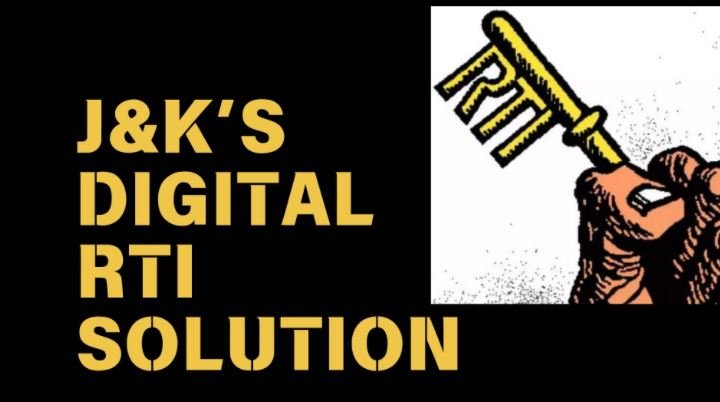Jammu and Kashmir has been taking significant steps to enhance transparency and efficiency in its public administration, and the development of a new Right to Information (RTI) portal is one of the most promising initiatives in this regard. The portal, which is set to be launched by December 10, aims to streamline the process of filing RTI applications, thereby making it easier for the public to access information from government departments and public authorities.
The RTI Act, which came into force in 2005, has been a cornerstone of India’s democratic process, empowering citizens with the right to seek information from government bodies. However, the process of filing and obtaining information has not always been smooth, with delays, bureaucratic hurdles, and limited accessibility often discouraging citizens from utilizing the law effectively. Jammu and Kashmir, like many other states, has faced challenges in ensuring that RTI applications are processed swiftly and efficiently. The new RTI portal aims to address these issues by digitizing the entire process, allowing citizens to file their applications online, track their status, and receive information in a more timely manner. One of the key features of the new portal is its end-to-end digital solution. The portal will not only enable the filing of RTI applications but will also integrate a secure payment gateway, allowing applicants to pay the necessary fees electronically. This will significantly reduce the time and effort involved in making payments, which is often a deterrent for citizens who wish to file RTI requests. Additionally, the portal will feature automated email and SMS alerts, keeping applicants informed about the status of their applications at every stage of the process. These features will make the RTI process more transparent and user-friendly, which is essential in a region where digital literacy is steadily increasing. Another important aspect of the RTI portal is the on boarding of all public authorities and their designated nodal officers. The General Administration Department (GAD) has been tasked with ensuring that all government departments are integrated into the portal, a process that has already begun. By offering citizens an easy and accessible way to request information, the portal will help to break down the traditional barriers of bureaucracy that have often hindered the free flow of information. It also marks a move toward greater openness in government operations, which is crucial for fostering public trust. Moreover, the RTI portal is expected to have a positive impact on the region’s governance practices. As more citizens utilize the portal to request information, it will put pressure on government departments to act more swiftly and transparently. This will promote a culture of accountability, where officials are mindful of the public’s right to know and are incentivized to provide timely and accurate information. The introduction of this portal is also likely to result in better data management practices across departments, as government bodies will need to be more organized and efficient in handling the influx of requests. However, for the RTI portal to achieve its full potential, it is essential that it be accompanied by a robust system of monitoring and evaluation. There must be regular checks to ensure that applications are processed in a timely manner and that the quality of information provided is accurate and comprehensive. Public Information Officers and Appellate Authorities must be held accountable for their responses, and there must be a system in place to address grievances and ensure that citizens’ rights are upheld. Additionally, regular feedback from users will be crucial in identifying areas for improvement and ensuring that the portal remains user-friendly and accessible to all segments of the population, including those with limited digital literacy.
The development of Jammu and Kashmir’s new RTI portal is a commendable step toward fostering transparency, accountability, and efficiency in governance Furthermore, a robust system to address grievances and ensure timely responses will strengthen trust in the portal, solidifying it as a vital tool for empowering the public and improving governance in Jammu and Kashmir.




